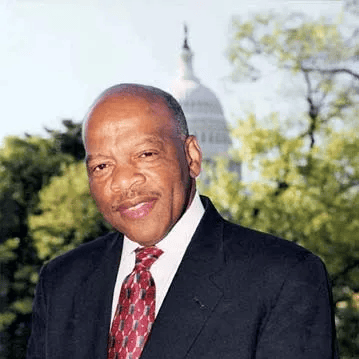Established in 2021, the prize is offered annually to recognize individuals outside the ranks of professional historians who have made a significant contribution to the study, teaching, and public understanding of history, in the interest of social justice. The prize was established with an endowment gift from the Agentives Fund and replaces the Association’s Roosevelt-Wilson Award for Public Service, which was presented to Congressman Lewis in 2006.
The current prize amount is $1,000.
According to the selection criteria, recipients can be individuals or collaborative groups. They may include persons who have made a significant contribution to the support and encouragement of history through their actions. Such noteworthy activity may include advocacy for historical work and the importance of history to public culture and social justice, philanthropy, support for organizations that promote history in public life, historic preservation, or other work that cultivates public awareness of history and its value to public culture.
The executive director and the AHA president will serve as the jury and will recommend nominees to the AHA Council. The AHA Council will make the final selection of the honoree(s) at its June meeting. The recipients will be announced at the Association’s annual meeting.

John Lewis
The prize is named in memory of John Lewis (1940–2020), the civil rights leader who represented Georgia with grace and distinction in the United States House of Representatives for 34 years. All of us, insisted Lewis, must “study and learn the lessons of history because humanity has been involved in this soul-wrenching, existential struggle for a very long time.”
Past Recipients
Current Recipient
Stanley Nelson, Firelight Media
The breadth and depth of Stanley Nelson’s vast corpus of documentary films is stunning. He easily ranks among the most influential documentary filmmakers in the United States. Few others match his intellectual breath and vision. The AHA especially appreciates Nelson’s ability to create films that translate often difficult and painful historical issues into a medium accessible to broad audiences. It seems fitting to honor him with an award named for John Lewis, who devoted his life to the social movement that Nelson has so brilliantly and sensitively portrayed. Like Lewis, Nelson brings to his work respect for the courage and humanity of those who have struggled to confront this country’s difficult past and to make it a more just and egalitarian society.